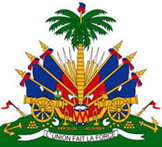The consultations and the subsequent wrap-up activities in the priority zones aimed at collecting final comments from key stakeholders in order to complete the project's final report, as well as to define the key objectives, outcomes, and outputs of a fisheries and aquaculture sector development programme to be presented to potential financiers. As a result, the participants had a better understanding of the regulatory gaps in the fisheries and aquaculture sector in Haiti; understood the interest in mobilizing strategic partnerships for priority areas in the fisheries and aquaculture value chain; became aware of the productive capacities necessary for sustainable fisheries; and contributed to the formulation of recommendations for a development project in priority areas. Stakeholders’ recommendations collected during focus group discussions and workshops include:
- put in place clear and effective legislation to regulate fishing;
- raise awareness and capacity building for fishermen;
- establish a retraining and continuous learning system for fishermen, including the issuance of fishing licenses and specialized training in fishing and aquaculture;
- install fish aggregating devices (FAD);
- provide appropriate sanctions in the event of non-compliance with regulations, including offenses related to the installation and destruction of Fish Aggregating Devices (FADs);
- provide technical and financial support to fishermen;
- improve marketing and conservation of fish, incl. infrastructure, conservation, etc.;
- support the mobilization of women in the fisheries and aquaculture sectors;
- develop specific infrastructure and services for the sector;
- raise awareness and educate fishermen on protecting marine ecosystems;
- set up training programmes and develop aquaculture;
- facilitate the structuring of fishing cooperatives while ensuring the availability of fishing equipment.
In light of the Joint Programme outcome number 2: "Strengthened development of the fisheries and aquaculture sectors in Haiti through the mobilisation of targeted strategic partnerships", the objectives of the two back-to-back wrap-up workshops focus on the following points:
- Discuss regulatory gaps in the fisheries and aquaculture sector in Haiti,
- Mobilising partnerships for priority areas in the fisheries and aquaculture value chain;
- Identify the productive capacities needed for sustainable fisheries, and
- Formulate recommendations for the effective implementation of a development project in priority areas.
The following outcomes will aim to be achieved:
- Participants have a better understanding of the regulatory gaps in the fisheries and aquaculture sector in Haiti;
- Participants have understood the value of mobilising strategic partnerships for priority areas in the fisheries and aquaculture value chain;
- Participants learned about the productive capacities required for sustainable fisheries;
- Participants contributed to the formulation of recommendations for a development project in priority areas.

 Government of Haiti
Government of Haiti